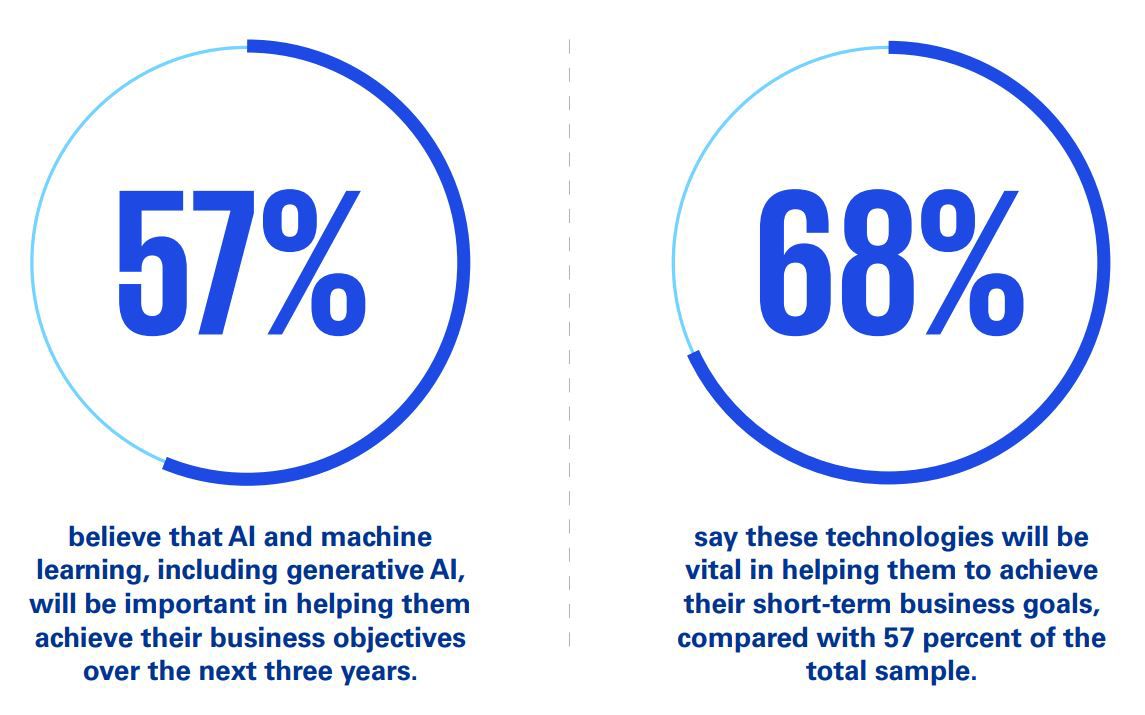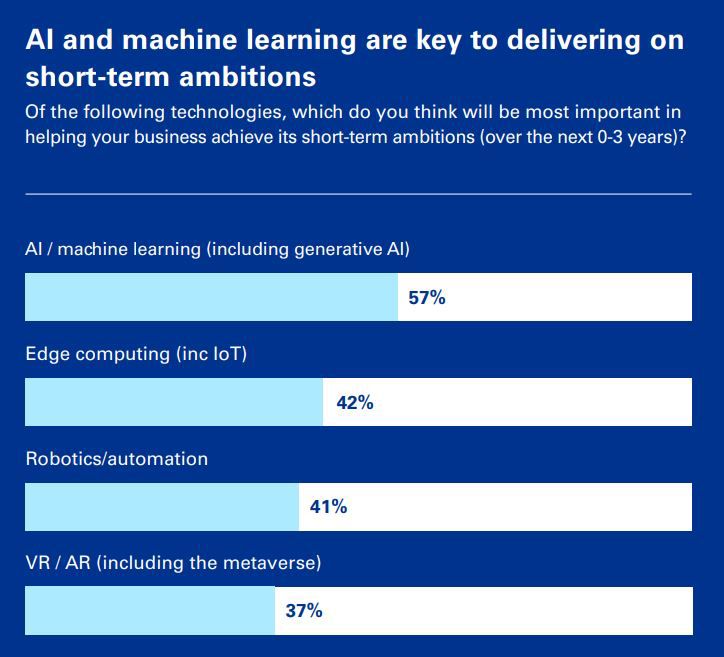Organizations consider AI and machine learning as the most important technologies for achieving their short-term ambitions, is shown in KPMG’s Global Tech Report 2023. More than half of the technology professionals we spoke to (57 percent) believe that AI and machine learning, including generative AI, will be important in helping them achieve their business objectives over the next three years. This is significantly ahead of the next technology in the rankings: edge computing (42 percent). Among leading businesses where investment in technology is driving confidence and profitability most quickly, AI and machine learning are even bigger priorities. More than two-thirds (68 percent) say these technologies will be vital in helping them to achieve their short-term business goals, compared with 57 percent of the total sample.

AI strategies are changing at speed
As a result of the rapid advances in AI, and generative AI in particular, many businesses are being forced to reassess their AI strategies. In last year’s report, 40 percent of businesses said they had reached the “proactive” stage of their strategy for AI deployment; today, that figure has dropped to just 15 percent. While they recognize the potential of AI to help them with their short-term ambitions, they are also determined to be agile in their approach to execution.
One reason for this is the debate about how to introduce AI ethically and safely: 55 percent of organizations say progress toward automation has been delayed because of their concerns about how AI systems make decisions. As scrutiny of AI increases, organizations will need policies and practices they can articulate and apply with confidence.
So while the pace of evolution in AI has accelerated, it remains crucial that organizations put the right foundations in place before rushing ahead, says Michael von Roeder (Group Chief Digital Officer at 50Hertz Transmission GmbH).
“I can see why companies have taken a step back with their AI strategies — in the last 12 months organizations saw that AI is leaping forward and can do awesome stuff, but companies also realized they need to structure its application,” says von Roeder. “That is where I see work needs to be done: implementing change management and ensuring that the right procedures and governance are in place, especially around the technological and data foundations.” Generative AI requires high-quality training data that is searchable and retrievable, he adds.

How to succeed with AI
It is important to remember that AI provides a way to drive value from many other investments in technology, particularly in the data arena, says Masashi Kaneko, Chief Digital Officer at Mitsubishi Tanabe Pharma Corporation.
“Data and AI are important to businesses in two ways,” says Kaneko. “First, they help us to make better decisions. And second, they can make the invisible visible. In pharma, for instance, we need evidence to develop new processes, and we have a lot of data. However, when it comes to analyzing big data, the human brain is limited. That’s where AI comes in. The marriage between big data and AI helps us to find what we can’t initially see.”
Merck’s Nan Wang says that businesses that are struggling with integrating multiple technologies or advanced capabilities, such as AI, in their tech stack may need to revisit the basics. Businesses often overlook the need to strengthen their foundational IT layers so that advanced technologies can thrive. “There are three main layers: infrastructure, process and data,” says Wang. “And with this foundation in place you can introduce advanced technology layers on top.”




